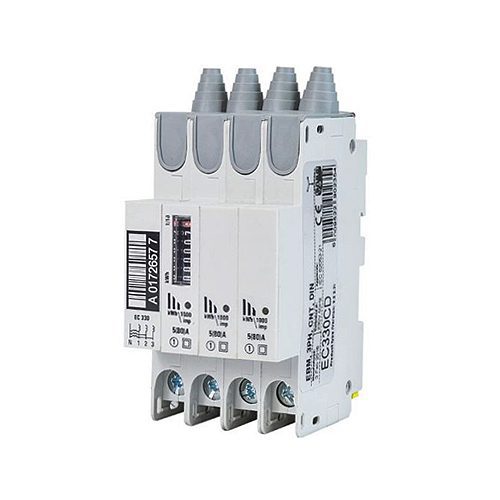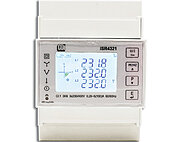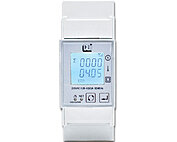Prepaid Meters vs Smart Meters – What’s the Difference in South Africa?
Why the Type of Meter Matters
In South Africa, the cost of electricity continues to rise, and load management is a daily concern. The type of electricity meter installed in your home or business plays a major role in how you monitor and pay for energy.
The two most common types are prepaid meters and smart meters. While both measure electricity usage, they work in very different ways. Understanding the difference helps you make informed decisions about energy management, compliance, and long-term savings.
What is a Prepaid Meter?
A prepaid meter works much like prepaid airtime on a mobile phone.
-
Users buy electricity tokens from retailers, banks, or online platforms
-
The token is loaded into the meter to add credit
-
The meter deducts usage as electricity is consumed
-
Power supply cuts off automatically when credit runs out
Prepaid meters are widely used across South Africa because they put users in direct control of their electricity spending.
What is a Smart Meter?
A smart meter is an advanced digital device that records electricity consumption in real time.
-
Sends usage data automatically to the utility provider
-
Provides detailed consumption insights for users
-
Can support time-of-use tariffs (cheaper electricity at off-peak times)
-
Allows remote reading, so no manual meter readings are required
Smart meters are gradually being rolled out in South Africa as part of modern grid management.
Key Differences Between Prepaid and Smart Meters
-
Payment method: Prepaid requires tokens loaded in advance; smart meters are usually billed monthly
-
Monitoring: Prepaid gives a simple credit balance; smart meters provide detailed real-time data
-
Disconnection: Prepaid cuts power when credit runs out; smart meters may allow remote disconnection for non-payment
-
Features: Prepaid meters are simple and reliable; smart meters support advanced features like time-of-use billing
-
Cost: Prepaid meters are cheaper to install; smart meters require higher upfront investment
Advantages of Prepaid Meters
-
Easy to understand and use
-
Encourages budgeting and energy-saving habits
-
No unexpected monthly bills
-
Widespread availability of token purchase options
-
Reduces the risk of debt with utility providers
Advantages of Smart Meters
-
Provides detailed consumption data for better energy management
-
Enables utilities to balance grid loads more effectively
-
Supports future technologies such as solar integration and dynamic tariffs
-
No need to buy tokens; automatic billing is convenient for some users
-
Helps detect faults or tampering quickly
Which One is Better for South Africa?
The choice depends on user needs:
-
Prepaid meters are ideal for households that want direct control over their electricity budget and prefer the simplicity of a pay-as-you-go system.
-
Smart meters are better suited for households and businesses that want advanced monitoring, integration with renewable energy, and future-ready grid features.
As South Africa modernises its electricity infrastructure, smart meters are likely to become more common. However, prepaid meters will continue to be popular due to their accessibility and affordability.
FAQs
Can I convert from a prepaid meter to a smart meter?
Yes, but this usually requires an installation by your municipality or utility provider.
Are prepaid meters being phased out?
No. Prepaid meters remain widely used and are not being phased out in South Africa.
Do smart meters need internet?
No. They use built-in communication systems to send data to the utility provider.
Which meter is more cost-effective?
Prepaid meters are cheaper upfront, while smart meters can save money long-term through detailed monitoring and tariff options.
Can both meters be used with solar systems?
Yes, but integration is simpler with smart meters due to their advanced communication features.
Buy Meters Online with Lite-Glo
Lite-Glo supplies a wide range of electricity meters, including prepaid meters, smart meters, and accessories for residential and commercial use. All products are compliant with South African standards and trusted by electricians across the country.
Shop Pre-Paid Meters
Shop Energy Meters
⚠️ Safety & Compliance Notice
All electrical installations in South Africa must comply with SANS 10142-1 (Wiring Code) and the Occupational Health & Safety Act. Work must be carried out by a qualified, registered electrician.
This article is for general educational purposes only. It does not replace professional advice, and Lite-Glo accepts no liability for how this information is used. Always obtain a valid Certificate of Compliance (CoC) for any electrical work.
Need Assistance?
📧 onlinesales@liteglo.co.za
📞 011 781 3100
💬 WhatsApp: 060 322 9674
























